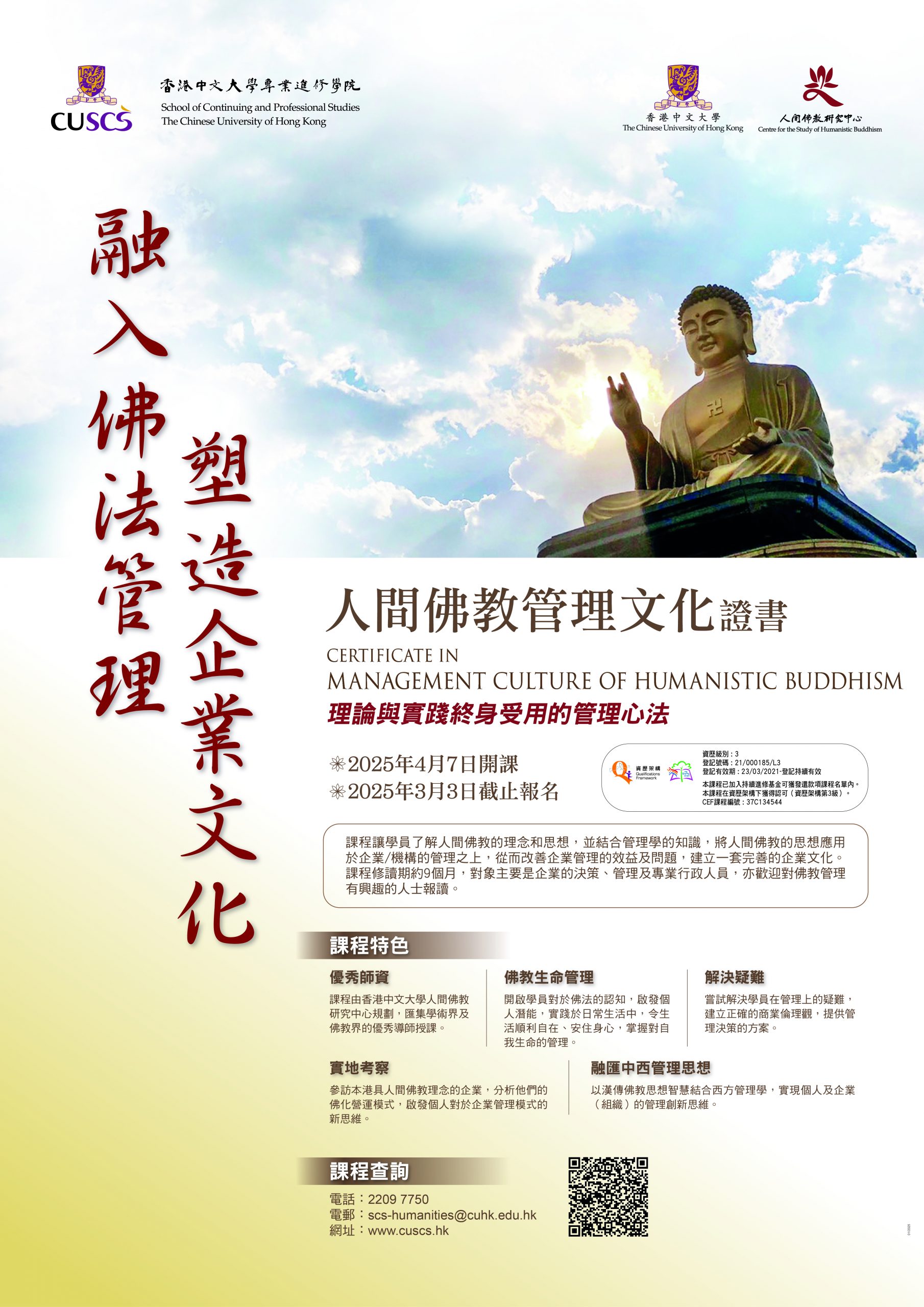This programme is recognised as Level 3 Qualifications Framework on the list of reimbursable courses under the Hong Kong Continuing Education Fund, Course Code: 37C134544.
Registration number on the Qualifications Register: 21/000185/L3;
Course number: 213-466000-01, Validity period: from 23/03/2021 as registration continues to be valid.
Course facets
- Excellent Teachers:
The Centre for Studies of Humanistic Buddhism at the Chinese University of Hong Kong is responsible for planning and co-ordinating the curriculum, bringing together outstanding teachers from academia and the Buddhist community.
- Life Management:
Enlighten students’ understanding of the Buddhist Dharma, inspire their potential, and practice it in their daily lives, help them live easily and comfortably, settle their bodies and minds, and master of their own lives management.
- Troubleshooting:
Try to solve the management problems raised by the trainees; Establish a positive business ethic and provide solutions for management decisions.
- On-site visiting:
Visit Hong Kong’s Buddhist enterprises to study their Buddhist business models and inspire new thinking on business management models.
- Integrating Chinese and Western management ideas:
Combining the wisdom of Chinese Buddhism with Western management, to realize the thinking in management innovation both individuals and enterprises (organizations).


